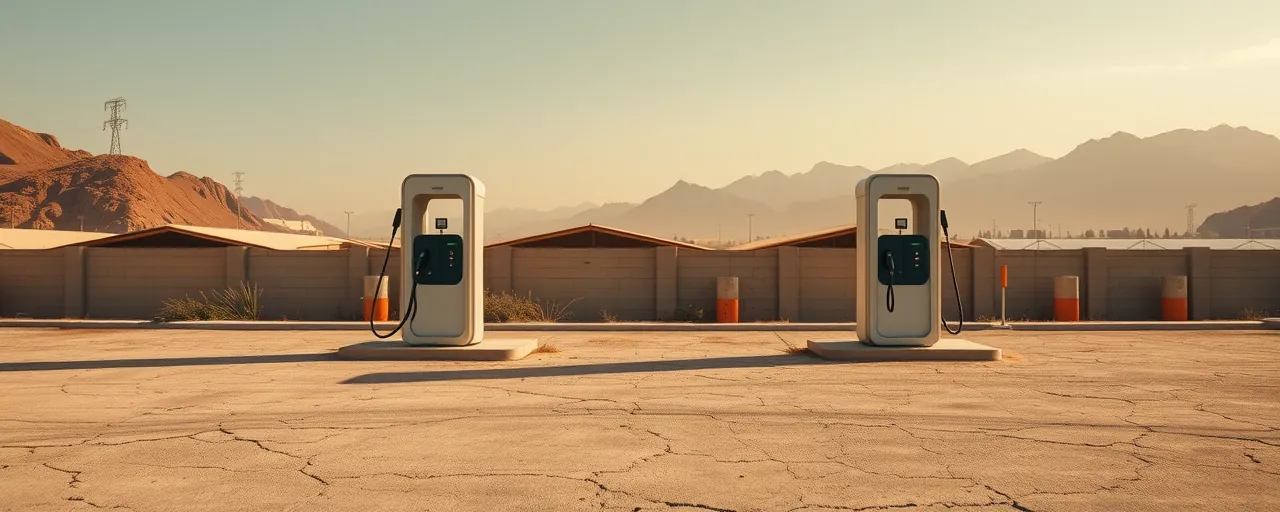Time to Rein in Federal Excess
President Trump’s decision to audit billions in clean energy grants hits like a wake-up call for a nation drowning in federal overspending. For too long, Washington has poured taxpayer money into flashy green projects that promise miracles but deliver delays and deficits. The Department of Energy’s scrutiny of 300 grants marks a turning point, demanding accountability and aligning resources with America’s real energy needs.
These audits tackle a mess left by the Biden administration’s reckless spending. The Infrastructure Investment and Jobs Act and Inflation Reduction Act funneled $85 billion into clean energy, often with little regard for results. Carbon capture and electric vehicle charging projects gobbled up funds, yet many sit unfinished or underperforming. Why should Americans bankroll experiments that prioritize politics over practicality?
Launched in early 2025, Trump’s reviews have already canceled $6.8 million in grants to groups like the Rocky Mountain Institute and targeted $20 billion in EPA awards for potential waste. This bold action speaks to voters fed up with government bloat, signaling a commitment to spend smarter and keep energy reliable.
Betting on Proven Energy Sources
The administration’s focus on oil, gas, coal, nuclear, and critical minerals grounds energy policy in reality. Federal grants belong in industries that power the nation now, not in speculative ventures chasing net-zero fantasies. Trump’s plan to slash $163 billion in non-military spending for 2026, including $15 billion in renewables, redirects funds to energy sources that deliver.
History proves this strategy works. Despite decades of clean energy grants since the 2009 Recovery Act, fossil fuels still provide over 60% of U.S. energy. ARPA-E’s $2.93 billion in high-risk research has produced some innovations, but scaling them remains a gamble. Oil and gas, by contrast, keep prices steady and jobs abundant. Doesn’t it make sense to back what powers America today?
Supporters of clean energy grants tout innovation and jobs, but the numbers tell a different story. The Inflation Reduction Act’s $49 billion in deployment funding has enriched corporations more than communities. Tax credits often pad the profits of global firms, not local workers. Trump’s audits demand accountability, ensuring public funds serve the public, not special interests.
Fighting Back Against Resistance
Not everyone cheers this overhaul. Democrats and environmental advocates have rushed to court, fighting to restore frozen funds like the Solar for All program. Some judges have sided with them, citing technicalities, but these decisions dodge the core issue. Trump’s actions reflect a voter-backed mandate to put America’s economic strength first, not bureaucratic red tape.
Critics argue that cutting grants undermines climate goals and community benefits. Yet, their claims falter under examination. The $5 billion for grid resilience and $3.5 billion for weatherization sound promising, but where are the concrete results? GAO reports from 2025 flagged questionable costs in many programs, even if fraud wasn’t widespread. Why protect spending that doesn’t deliver?
These legal skirmishes reveal a broader clash. While some defend every clean energy dollar as untouchable, the administration views unchecked grants as a breach of public trust. Through Executive Order 14151 and OMB Memo M-25-13, Trump enforces rigorous oversight, ensuring taxpayer dollars meet urgent needs—affordable energy and national security.
Building a Stronger Energy Future
Trump’s audits lay the foundation for a thriving America. By phasing out market-distorting tax credits and boosting traditional energy, the administration strengthens industries that employ millions. Faster permitting and automatic LNG approvals signal a drive for energy independence, not reliance on imported renewables.
This vision doesn’t reject progress. Investments in nuclear energy, with $6.4 billion in Civil Nuclear Credits, and critical minerals research show a practical approach. But innovation must serve the nation, not lobbyists. The Department of Government Efficiency’s cut of 12,000 grants, saving $37 billion, proves that fiscal restraint can fuel growth.
As Trump reshapes federal spending, Americans deserve results, not empty promises. The energy sector flourishes when markets, not government mandates, lead the way. These audits pave the path to a self-reliant nation. Will we embrace this chance to prioritize strength and prosperity?
